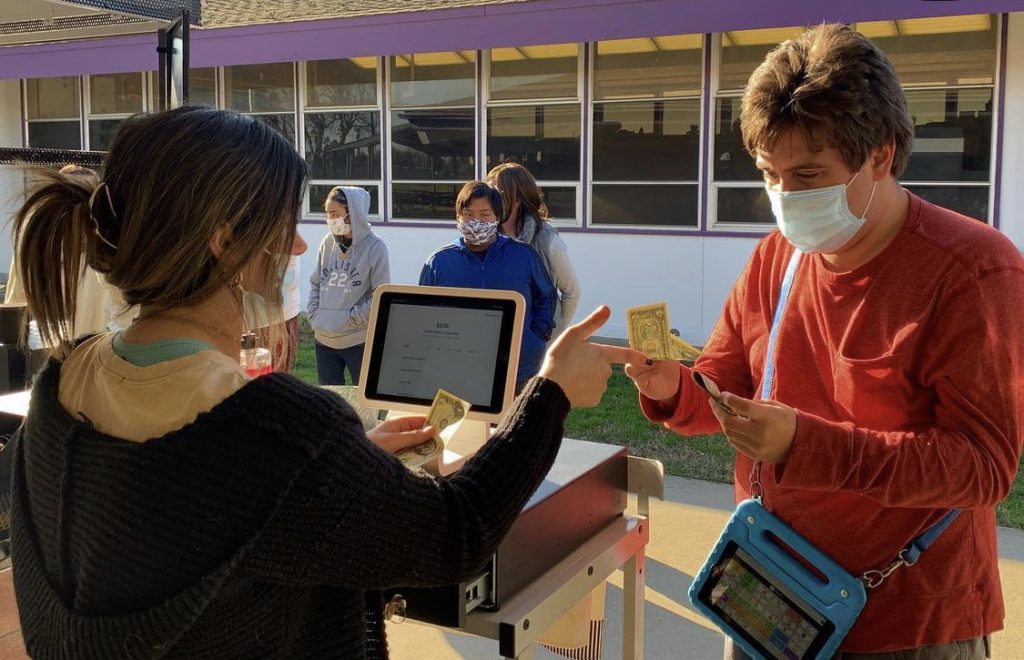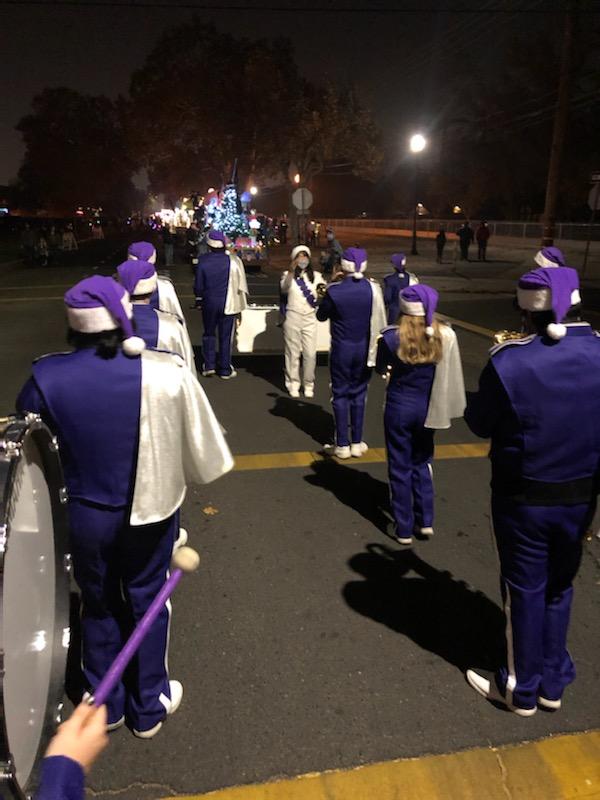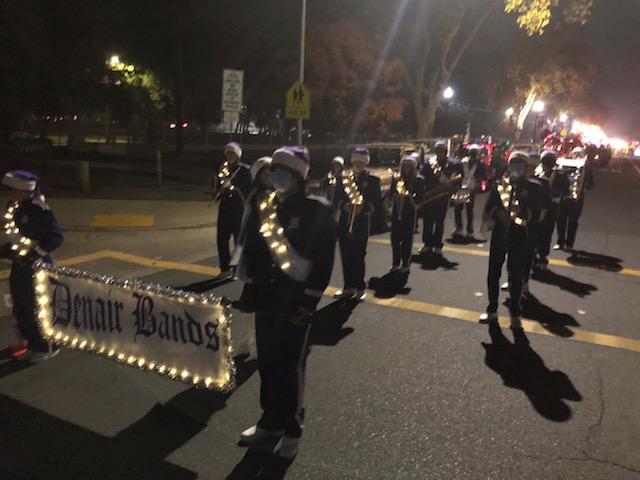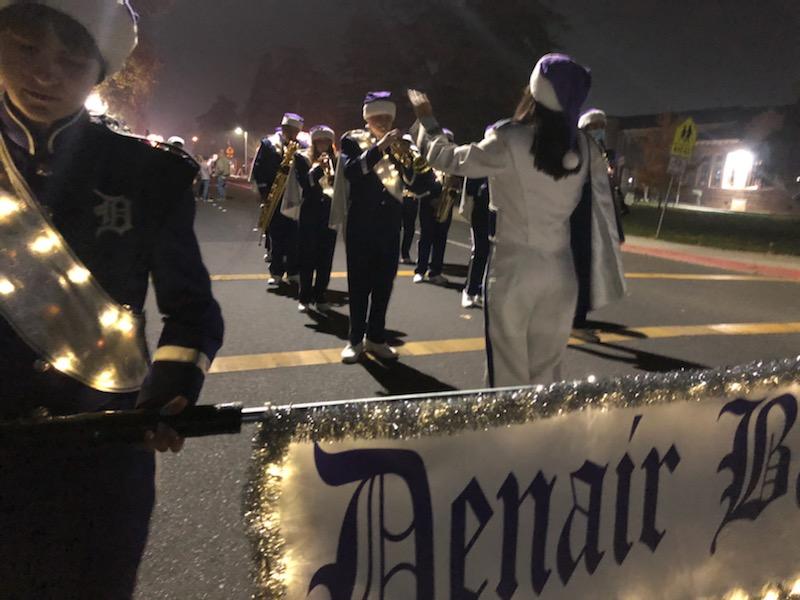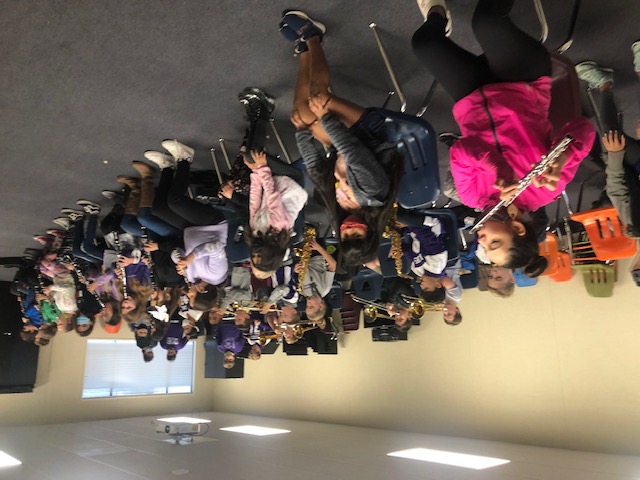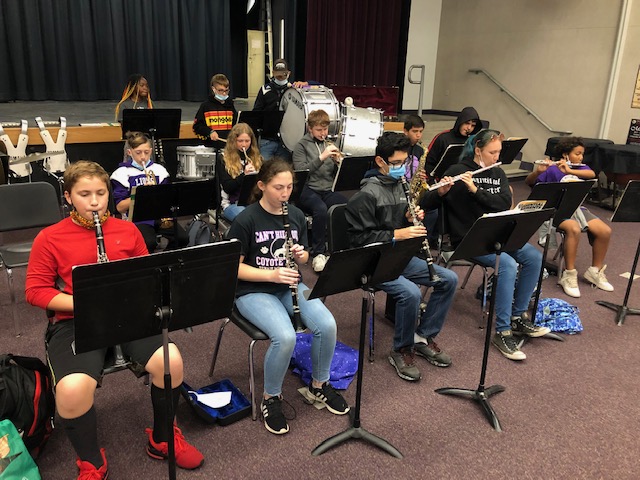The Denair Unified School District school board would like some clarity from local and state officials regarding COVID requirements concerning face coverings and, potentially, mandatory vaccinations for students. So would a small but vocal group of parents and community members who attended Thursday night’s board meeting.
In an effort to better anticipate what lies ahead, trustees directed Superintendent Terry Metzger to draft and send a letter to area legislators, the governor, state and local health leaders, and state and local education officials seeking information.
The district’s questions boil down to this:
- Masks: What are the benchmarks for removing mask mandates from schools? What conditions need to be met to eliminate universal masking in K-12 schools?
- Vaccines: When will legislators begin to debate mandatory vaccination of students, how will public comment be accepted and will a personal-belief exception be allowed?
Metzger expects to have a final version of the letter ready for trustees to sign next week. It will be sent soon after and posted on the district’s website.
Masks have been required on all California campuses since some students began returning earlier this year. School districts have no choice in the matter. The rules are established by the California Department of Public Health, Metzger explained to trustees and those in the audience Thursday night. The district’s attorney and insurance carrier also have warned Denair Unified could be in legal jeopardy if it doesn’t follow the state rules.
That didn’t dissuade about a half-dozen speakers – including one tearful student – from pleading with trustees to drop the mask mandate.
“This is about government control and school districts are being held hostage,” said Marie Stucker, whose daughter became emotional when talking about being forced to wear a mask in class.
Andrea Bennett cast the issue as one of “parental choice.”
“We don’t oppose those who want to wear masks or get a vaccine; we want to make our own choices,” she said.
Any push toward mandatory vaccination of all students – something Gov. Gavin Newsom suggested earlier this fall – clearly was opposed by those in the audience Thursday. Metzger and Board President Ray Prock Jr. cautioned that a vaccine mandate for students could only occur after being debated and voted on in the Legislature, and then signed into law by the governor.
“We expect it to be a legislative process, not an edict from the governor, despite what he said a few months ago,” Metzger said.
Without an urgency declaration by lawmakers, Prock doubted any vaccine mandate could take effect before Jan. 1, 2023.
Metzger said it would up to the Legislature whether to include a personal-belief exception for parents to cite in not vaccinating their children – if and when any mandate would be passed in Sacramento. Such exemptions used to exist for other mandatory vaccinations students must have to enroll in school, but were abolished in 2015, she said.
“We want legislators to consider how a vaccine mandate will affect in-person learning,” Metzger said. “As it stands right now, not having a personal-belief exemption would require students to go to independent study. We know that works for some families, but not for most families.”
The superintendent also said that in the past month, the health community has begun to shift from calling COVID a “pandemic” and begun referring to the virus as “endemic” – meaning, like the common cold and the flu, it’s likely here to stay.
“It means we will be dealing with COVID for a long time,” Metzger said. “We need long-term guidance.”
In other action Thursday night, trustees:
- Listened to a report from Metzger on the district’s mental health programs, which have been recognized as among the best in the state. The district has four counselors, one psychologist, one full-time and one part-time mental health clinician, and one student assistance specialist on staff. The positions are paid for by a combination of state and local funds, plus partnerships with Legacy Health Endowment in Turlock and the Center for Human Services in Modesto. Metzger said concerns remain about the mental health of some students who have exhibited signs of stress, anxiety, anger and even suicidal thoughts during the pandemic. Social media often exacerbates those feelings, she said. Among other things, the district offered a three-hour workshop for all students last fall and will provide three more hours next semester. Mental health services also are available to teachers and other staff members.
- Heard the first interim budget report, which revealed that district enrollment is 67 students lower than the 2021-22 budget had projected. Most of that decrease (61 students) is the result of lower attendance at Denair Charter Academy. Fewer students translates into a drop in state funding of about $140,000.
- Accepted the resignation of Chief Business Official Linda Covello, effective June 30, 2022, at the end of the current school year. Trustees also voted 5-0 to approve a plan to replace the CBO position with a Director of Fiscal Services/Chief Business Officer. Recruiting for that opening will begin in January, with the goal of hiring someone in time for them to cross-train with Covello and help develop the 2022-23 budget before she leaves. The district expects to save $37,000 in salary with the new job classification.
- Voted 5-0 to appoint Trustee Ray Prock Jr. to be board president and Trustee Carmen Wilson to be board secretary for the next year. Trustee Regina Gomes was appointed to the Stanislaus County Committee on School District Reorganization.
- Unanimously approved offering $2,000 bonuses to teachers and staff members who let the district know by January if they intend to retire at the end of this school year. Early notification allows the district to better plan for the next year’s staffing needs, Covello said.

